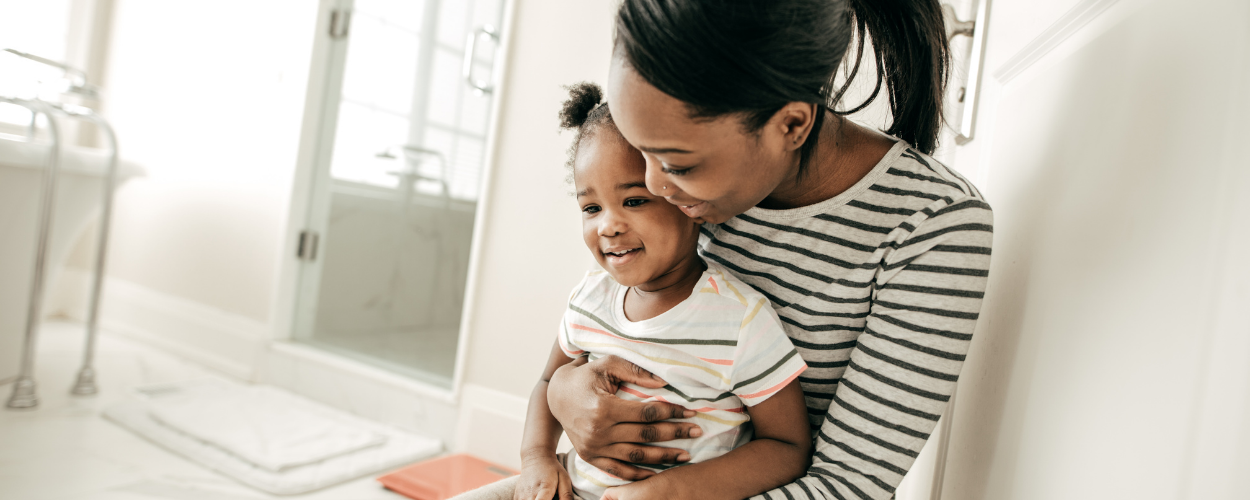If you’ve recently welcomed, or are planning to welcome a baby into your family, you might be looking forward to all of the ways you can start connecting with your newborn.

This can be surprisingly difficult since newborns give little to no positive feedback on your care. Newborns typically don’t start smiling until around 6 weeks and they can be tricky to understand.
Communicating with Your Newborn
It’s important to know that communication is key to connection and babies are trying to communicate from day one. We have to learn to listen to what they’re saying, both verbally and non-verbally.
Did you know that if a baby is hungry their cry will sound different than if they’re tired. The Dunstan Baby Language offers a novel way to identify unique sounds like “oh”, “eh”, or “new” in babies cries and their corresponding need.

Sometimes our babies communicate with us in non-verbal ways. We know from our On-Demand Infant Massage Class, Comforting Touch for Babies that babies might tense their body or look away when they are overstimulated.
On the contrary, babies have a relaxed body and make eye contact when they're in a quiet alert state.

While they can’t respond clearly, babies are primed and ready to take in language. Talking to your baby – something as simple as narrating your day – is a simple and easy way to build a connection.
Introducing Sign Language to boost communication is another meaningful tool. It’s never too early to start talking and it’s never too early to start signing.
Skin to Skin and Holding Babies Can Help Promote Bonding!

Whether you’re instinctively drawn to it (or not) carve out some time to hold your baby close.
If you’re able to hold your baby “Skin-to-Skin” meaning their chest is bare and your chest is bare, there’s additional benefits since you’ll both release oxytocin - our love, trust and bonding hormone!
Wearing a baby in a carrier throughout the day is a lovely way of keeping babies cuddly, while also having your hands free to attend to personal needs, the dishes or even emails.
Babies who are held throughout the day, also cry less.

Bringing your baby on outings can help fill your cup while strengthening your bond!
Strap your newborn into a baby carrier and walk to grab a coffee, meet a friend for lunch or just talk to your pediatrician and maybe your therapist about when and where it makes sense to start bringing your baby out in public.
Embrace (and master) the Repetition

Diaper changes, swaddling, getting them to sleep… So much confidence and beauty can be found in mastering the art of repetition. Consider approaching these tasks with the interest and dedication of an artisan.
You can both perfect the craft… “How few wipes can you use while getting your baby’s bum perfectly clean?” “Which genre of music seems to help them fall asleep?” “What’s the best way to organize a diaper bag for a quick outing?” and observe how your baby responds!
Tuning into your baby’s non-verbal cues during repetitive activities can increase your feelings of competence and highlight your intuition.
As your confidence increases, your ability to relax might increase your feeling of connection – where you can celebrate victories and share the sense of accomplishment with your baby.

If you want to learn more about preparing for life with a newborn, join an upcoming Newborn Care class with Birthsmarter.
By: Ashley Brichter
Founder of Birthsmarter
Certified Cooperative Childbirth Educator
Birth and Postpartum Doula
Lactation Counselor



